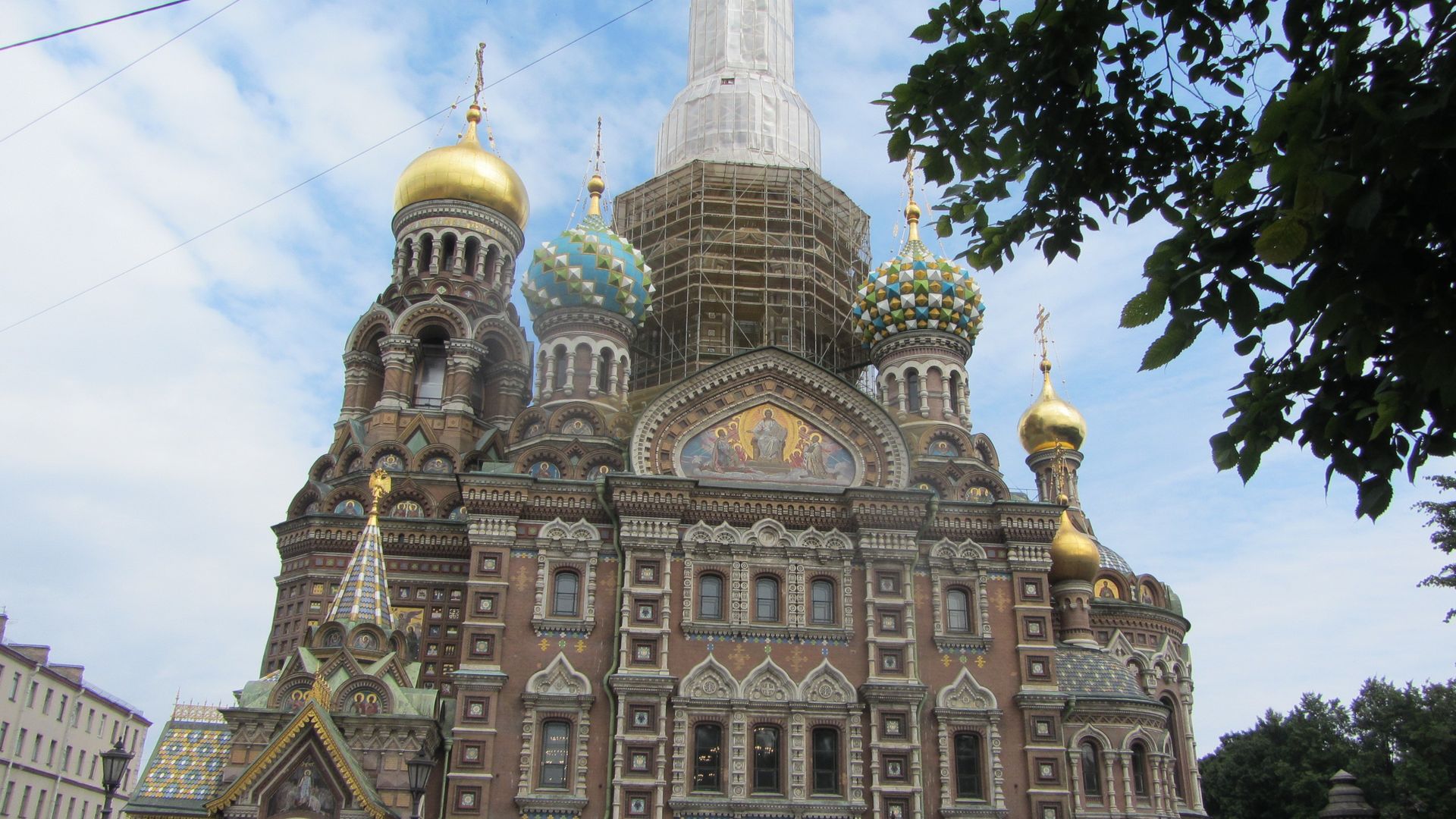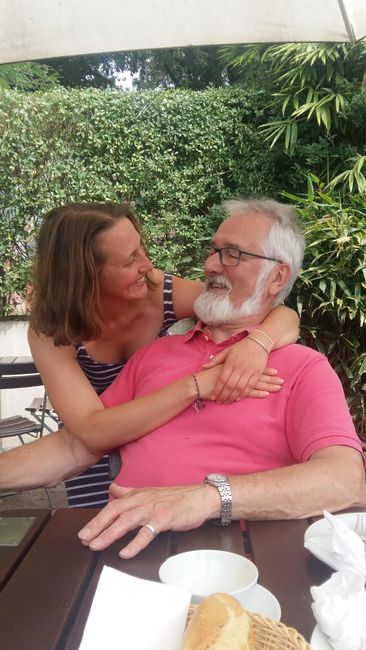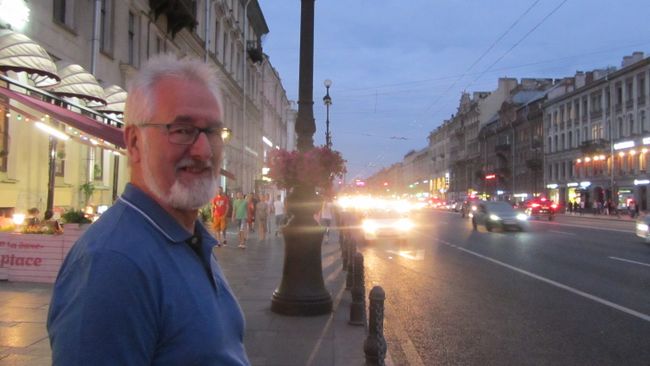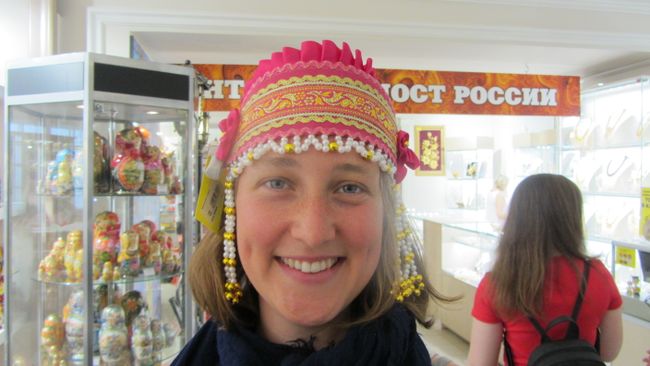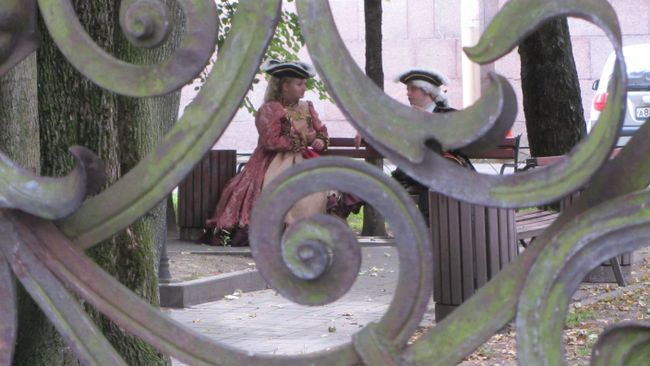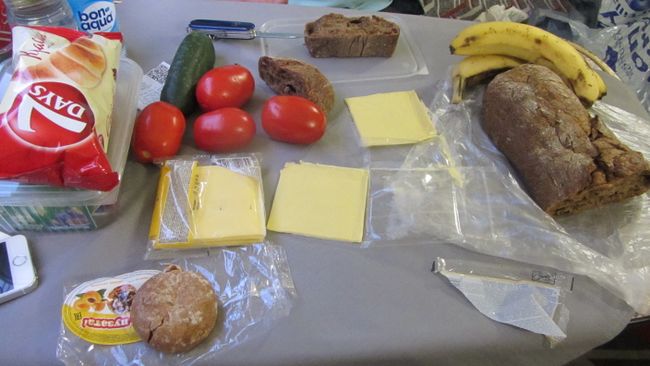St. Petersburg and the journey to Vologda
E phatlaladitšwe: 27.07.2018
Ingwadiše go Lengwalo la Ditaba
After a relaxed flight over the Baltic Sea, we arrived safely in St. Petersburg. We were driven directly to the city center from the airport and were able to enjoy the Nevsky Prospekt in the midst of the evening hustle and bustle, surrounded by tourists and strolling Russians, with a cool beer.
Yesterday, we walked 17 km through the city center of St. Petersburg and got a first, or rather second, impression of the majestic facade and magnificent churches. At first only from the outside, because the tourist part in Petersburg still has time...
With our backpacks on our backs and in front of our chests, we took the metro (for only 90 rubles = 1.50€) to the train station. Despite busy security checks and a crowded train station hall, we ended up on the right platform.
A sleeping compartment with two beds and a champagne reception in the luxury class awaited us. Twelve hours of travel lay ahead of us. The destination: Vologda - east of St. Petersburg. Before going to sleep, a little picnic filled our stomachs. Ultimately, the rhythm of the rocking train on the tracks sang us to sleep...
Anatoli, a very good friend and acquaintance, picked us up at Vologda train station and took us to the hotel. After initial difficulties regarding the reservation, we were able to move into our little kingdom.
After a refreshing tea and coffee, we were able to devote ourselves to our first task here. Russian Professor Alexandr for History and Memory Culture visited us at the hotel and took a lot of time for a lot of questions.
A beautiful conversation between three men and a young female student arose. The main topics were the history of prisoners of war, both in the Vologda region and in Russia itself. We discussed a lot about how it is dealt with nowadays, how important it is to remember and to seek reconciliation instead of retaliation on both sides.
Not everyone knows how the circle of history connects and closes on our journey together. The story of our paternal grandfather, who died here in a field hospital after World War II, is the story of suffering of almost 7,000 soldiers - in the Vologda region alone. I have taken on the task of researching this and working on scientific insights with the topic of memory culture for my bachelor's thesis. Here, I will first collect data, record memories and then contextualize them in my analysis. My goal is to highlight the importance of remembering the cruelty of history - especially in light of current conflicts and the global power imbalance.
Now the day is almost over, the air is thick enough to cut, and we are on the search for a cool refreshment...
до свидания, до скорого!
Helmut & Anna
Ingwadiše go Lengwalo la Ditaba
Karabo
